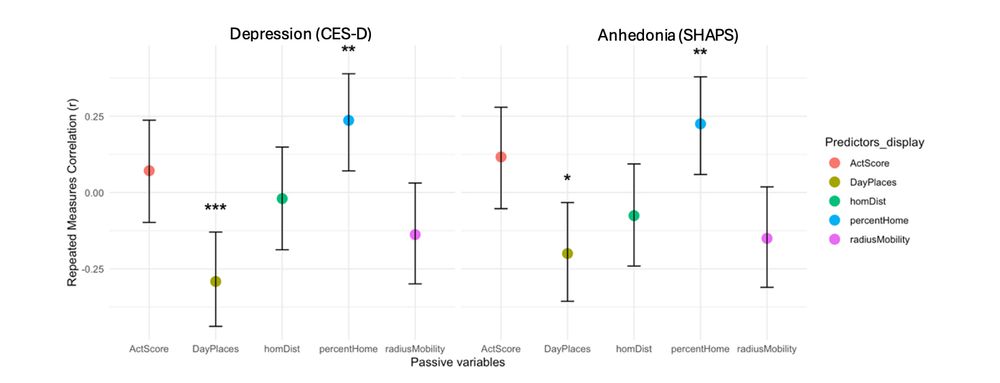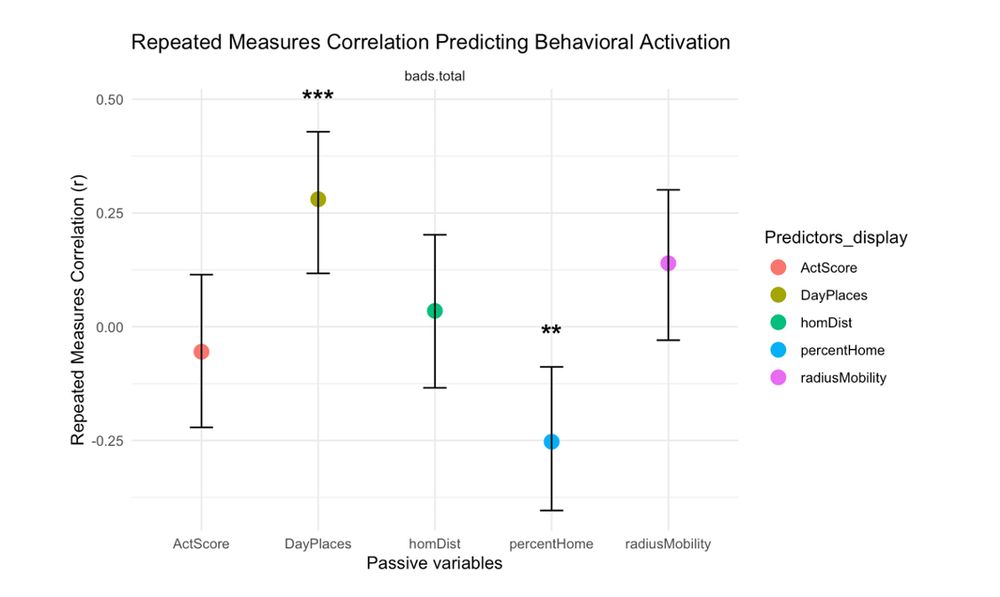
• Increases in GPT-rated activation were associated with higher daily positive and lower negative affect.
• Increases in GPT-rated activation were associated with higher daily positive and lower negative affect.
Using GPT-4o-based ratings of daily EMA text responses and smartphone data, we found:
Using GPT-4o-based ratings of daily EMA text responses and smartphone data, we found:
👉Ben Zion’s world View column: www.nature.com/articles/d41...

👉Ben Zion’s world View column: www.nature.com/articles/d41...
This opens new doors for early identification and prevention.
This opens new doors for early identification and prevention.
This was specific to depression! Emotion rigidity didn't predict anxiety symptoms.
This was specific to depression! Emotion rigidity didn't predict anxiety symptoms.
We used dynamic systems methods to build individual emotion networks and calculated emotional rigidity (how densely interconnected emotional states were).
We used dynamic systems methods to build individual emotion networks and calculated emotional rigidity (how densely interconnected emotional states were).
In this study, we asked whether emotion rigidity might precede and predict the onset of depressive symptoms.
In this study, we asked whether emotion rigidity might precede and predict the onset of depressive symptoms.




